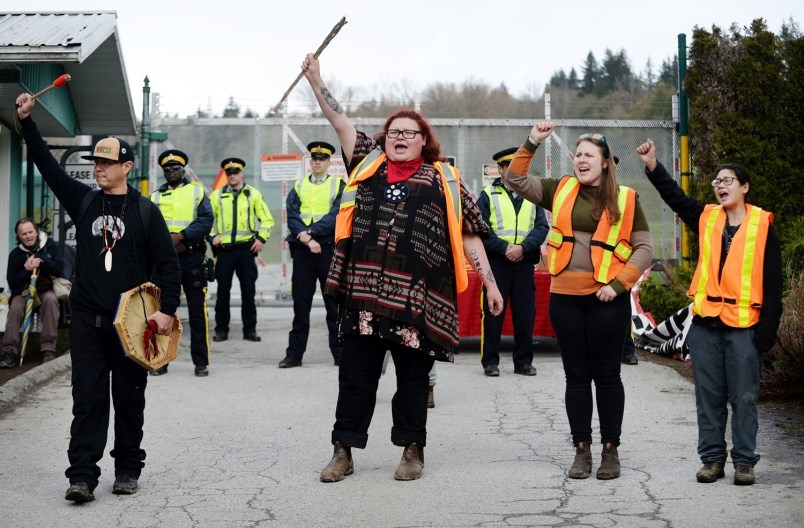When a story about Kinder Morgan, the Trans Mountain pipeline expansion project and the associated protests gets posted online by the NOW, there is always a strong response.
We weed through these reactions, and trust us when we say it’s not pleasant. First, there’s the threats. Then there are the tiresome arguments attacking people who are for or against the pipeline, as opposed to debating the merits of the pipeline itself.
Here are a few examples:
- That police who enforce the court injunction are corporate thugs. The police are just doing their jobs. People are breaking the law and police are enforcing the law. They’re not working for the company. Hate the injunction – not those who enforce it.
- That people who support the pipeline automatically have no respect for Indigenous rights. That’s a ridiculous oversimplification of a complex issue. Indigenous activist Ernie Crey wants to remind people that 43 Indigenous groups have signed benefits agreements with Kinder Morgan. “It’s the First Nations directly on the pipeline route who have much to lose if the new pipeline is not built,” he told The Globe and Mail. On Tuesday, The Vancouver Sun reported the Whispering Pines First Nation was actually looking at buying an ownership stake in the pipeline. Many Indigenous people are against the pipeline, but it’s far from unanimous, so maybe don’t paint every pro-pipeline person with such a broad brush.
- That people against the pipeline are “paid protesters.” Yes, there are professionals who work for environmental groups helping organize protests, but so what? Kinder Morgan has highly paid public relations people who work to spread the company’s message. Seen those pro-pipeline promoted tweets in your timeline lately? Someone is paying for them. And that’s the pro-pipeline side’s right. Same as it’s OK for professionals to organize protests to get their message across. Corporations have long steamrolled grassroots protests because people affected didn’t have the resources to mount effective campaigns. Now corporations are up against people who know what they are doing.
- “Did the protesters drive to the protests?” This could be the dumbest of all the arguments. People against the pipeline are part of a movement to push Canada away from fossil fuels to renewables to fight climate change. They acknowledge oil is a big part of today’s society, and they themselves are forced to rely on it. But they want that to end. After all, people can be against Site C and still use electricity.
There are logical reasons to be for or against the pipeline, so try sticking to those and stop with the tired tropes.



